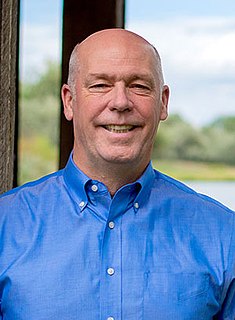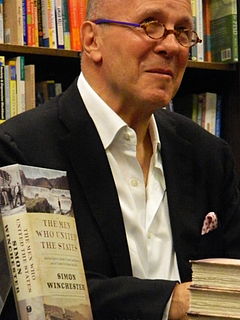A Quote by Greg Gianforte
Once the Internet removes geography as a constraint, the smartest people go to the most beautiful places.
Related Quotes
If you go to the right conservative places you'll find there's a huge argument about this among conservatives, particularly the conservative elites and the conservative intellectuals. There's always an argument among our people over who's the smartest person in the room and they're always trying to outsmart each other with the fanciest smartest most obscure argument. The fact is these arguments are taking place within the conservative movement I think quite a lot.
The Internet is the best and worst thing to happen to writing. It makes it so easy to quickly satisfy a lot of curiosity but it dampens curiosity for the same reason. It removes the obstacles that used to make hunting for knowledge sexy. I don't have Internet at home, so that helps. I try not to peek at the Internet through my phone when writing, but I don't have very good stamina.
I think time is a constraint to destroy and then reinvent. If you give me a constraint, I'll accept it. But I always try to move it around, or to readapt it. Ecco! If you lock me in a room, well I'll go out through the window! I always remember Achille Castiglioni, one of my mentors, and he always said that in industrial design you have the idea, the fantasy, the concepts - that's the marmalade! - but the constraint of the brief is the bread. You need both in order to find structure for your ideas.
Most kids come home from school. They don't go to their TVs first. They go to the Internet. They check their emails, or some blogs, or some sites. Then they go watch TV. Other people are at work all day 9-5 in front of a computer. They see certain clips. We're not going to hide the fact that people use the Internet. We're going to try to be as interactive as possible with our fans. I'm currently on Twitter and Facebook and Flicker and Dig. I'm on all that stuff.
Many of us were a little to early to assume that the most logical uses of the internet in authoritarian states would be to empower people. And to force them towards participation in politics. If you look at most authoritarian states, they are very grim places to live in. The only good thing about it is fast internet. That's the only way you can find some meaning in an otherwise very dark and gloomy life.
Everyone should be concerned about Internet anarchy in which anybody can pretend to be anybody else, unless something is done to stop it. If hoaxes like this go unchecked, who can believe anything they see on the Internet? What good would the Internet be then? If the people who control Internet web sites do not do anything, is that not an open invitation for government to step in? And does anybody want politicians to control what can go on the Internet?

































